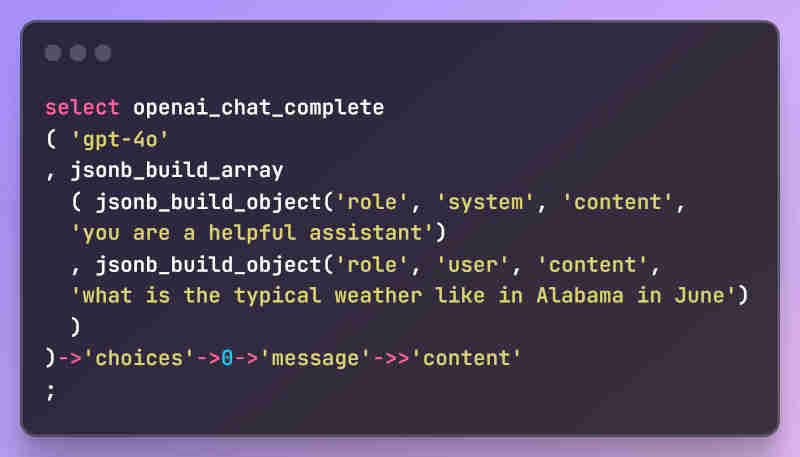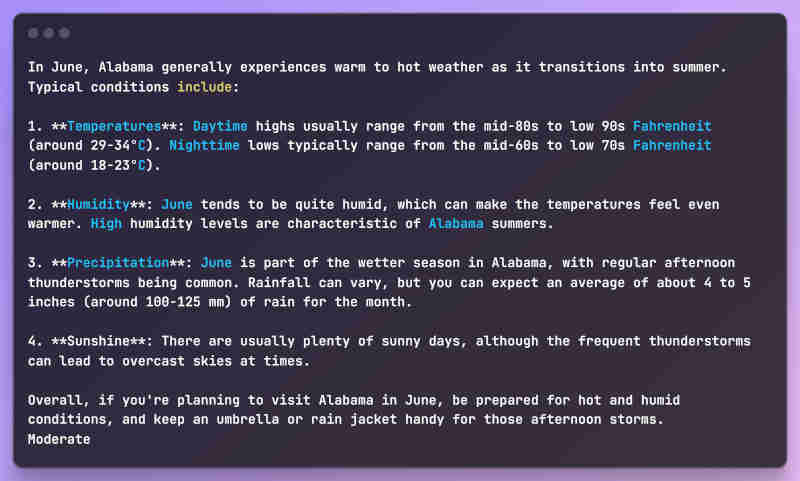| Pgai Brings Your ML Workload To The Database |
| Written by Nikos Vaggalis | |||
| Monday, 15 July 2024 | |||
|
Extensions like pgai are targeted at the "AI Engineers", a new breed of developers who unlike researchers are concerned with practically applying AI (models, tools, and APIs) to build software. These engineers don't want to leave their favorite tools for other tools dedicated to AI. Replace "tool" with Postgres and you'll see where this is going. In "Azure AI And Pgvector Run Generative AI Directly On Postgres" we witnessed the exact case in point. The Azure AI extension enables the database to call into various Azure AI services like Azure OpenAI. In short, what this means is that you can generate text embeddings by using SQL queries to call into both Azure OpenAI services without needing a separate application layer. It's all about making the developer's life easy by shifting the Machine Learning workload onto the database. That is, you provided with the ability to run ML models on your live data, without leaving the database. The new pgai open-source extension by Timescale does that exactly. It brings embedding and generation models closer to the database, making PostgreSQL an even better database for AI applications, catering for the needs of AI Engineers as stated in its official announcement: We spoke to a Timescale customer who was tasked with building a RAG application at their company. This engineer had decades of database and C experience but complained to us about fumbling around trying to learn Python to quickly build a proof-of-concept (PoC) to validate the core idea. “I wish I could do more of this in SQL” was a common refrain we heard from this and many other engineers we spoke to, ultimately sparking the idea for pgai. Wish granted! With pgai, you can now do the following directly from within PostgreSQL in a SQL query:
For instance, doing Chat completion to return the content as text from a specific message :
The data returned looks like:
Many examples to get you started can be found on the extension's Github repo, like using pgai with OpenAI. The initial release of pgai supports creating OpenAI embeddings and getting OpenAI chat completions from models like GPT4o directly from your PostgreSQL database. The plan is to add support for more models in the future such as Claude and Cohere. At this point I'd like to note down that there's another extension, PostgresML, which shares a very similar if not the same purpose. As we examined in which we examined in "PostgresML - Bring Your ML Workload To The Database", PostgresML is a machine learning extension for PostgreSQL that enables you to perform training and inference on text and tabular data using SQL queries. So make sure to check that article out to figure out which of the two extensions fits your purpose best. The gist, however, is that with extensions like this you can utilize PostgreSQL for AI as well without going out of your way. AI Engineers rejoice! More InformationPgai: Giving PostgreSQL Developers AI Engineering Superpowers Related ArticlesPostgresML - Bring Your ML Workload To The Database Azure AI And Pgvector Run Generative AI Directly On Postgres
To be informed about new articles on I Programmer, sign up for our weekly newsletter, subscribe to the RSS feed and follow us on Twitter, Facebook or Linkedin.
Comments
or email your comment to: comments@i-programmer.info |
|||
| Last Updated ( Monday, 15 July 2024 ) |




